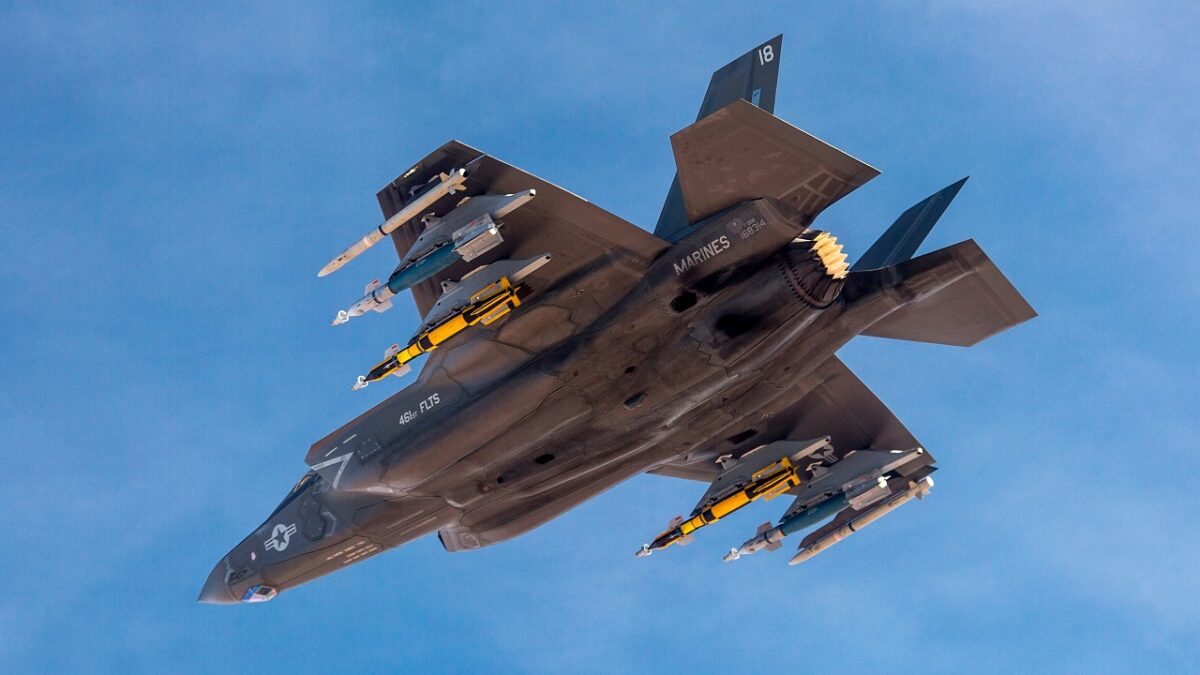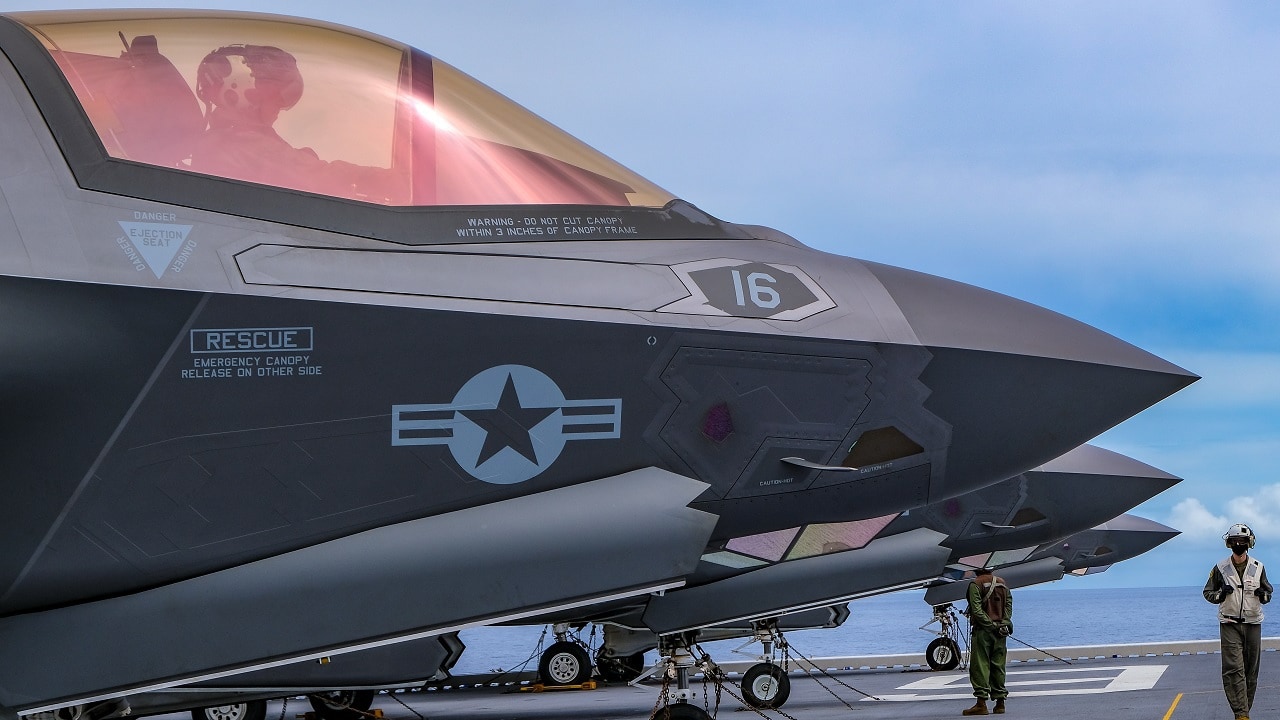The U.S. military sees itself as being in an environment where stealth is not the future but the present. And that means the U.S. military wants as many F-35 stealth fighters it can get its hands on and as soon as possible: The Air Force will be calling for more F-35A stealth fighters for the next 15 years if the secretary of the service branch gets his way. Air Force civilian chief Frank Kendall said he is not “changing the goal” to buy 1,763 F-35s. Before Congress got its chop on the defense budget, the Biden administration’s defense proposal called for $11 billion for 61 F-35s in total for the Department of Defense – 33 for the Air Force, 13 for the Navy, and 15 for the Marine Corps. This Air Force request is down from 48 F-35s to divert some funding for the Next Generation Air Dominance program – a fifth-generation fighter.
Answering 21st Century Threats
But will 61 F-35s be enough due to threats from Russia and China? These adversaries could keep the United States from penetrating its stealth fighters through contested air space and operating when and where Pentagon brass wants them to fly. This is known as anti-access/ area denial (A2/AD) and Moscow and Beijing have plans to use A2/AD against American airplanes to keep friendly aerial assets from flying where they want.
Not Enough
Thirty-three F-35s is a low ball number down from 48 the Air Force bought in FY22 and 27 fewer than it received in FY21.
Coaxing More from Congress
At least some members of Congress are listening to proponents calling for more F-35s. The Senate Armed Service Committee announced on June 16 that it would authorize seven more F-35As. But that is still not enough to accomplish a changing mission due to Russian aggression and China’s ambitions.
Resources Constrict Buys
Lt. Gen. David S. Nahom, the Air Force’s deputy chief of staff for plans and programs, is maintaining that the service branch is unsatisfied with the current level. “Would we have bought more F-35s if we had more resources? Yes, absolutely,” Nahom told Air Force Magazine.
Tough Choices on What to Retire
The Air Force is dealing with old airplanes. The F-15 C/Ds need to be retired and the new F-15EX may not be able to replace them all. Savings from the F-15EX program could go toward more F-35s. The A-10 is again on the chopping block, with many defense practitioners believing that the F-35 can take over its close air support mission.
Numerous Roles and Abilities
The F-35 has that multi-role capability that its fans love. It can intercept and destroy enemy fighters, evade air defenses, bomb, launch stand-off missiles, serve as an intelligence and reconnaissance craft, and can even “quarterback” a flight of drones. It just showed how it can feed targeting data to a Patriot missile defense system in a recent test that destroyed a drone flying as a test cruise missile. This is a bonus capability that detractors would not have imagined the F-35 to execute.
Popular Overseas
Plus, the F-35 is selling well on the international market. Finland ordered 64 F-35s in December. Canada just selected the F-35 as the go-to fighter in its competition for a new fighter.
Congressional Support Will Help
The F-35 also has numerous friends in Congress. One hundred and thirty-two bipartisan members supported the F-35 in its 2021 funding request. There are 1,800 suppliers of the program in 48 states that support thousands of jobs.

F-35 stealth fighter. Image Credit: Creative Commons.
We will see if the House Armed Services Committee, like the Senate, can plus up the numbers of the F-35. Now is the time to make a statement on its future. The airplane can handle more missions than other fighters in the fleet. It is the future of the U.S. military and a stalwart asset for allies around the world.
Now serving as 1945’s Defense and National Security Editor, Brent M. Eastwood, PhD, is the author of Humans, Machines, and Data: Future Trends in Warfare. He is an Emerging Threats expert and former U.S. Army Infantry officer. You can follow him on Twitter @BMEastwood.

